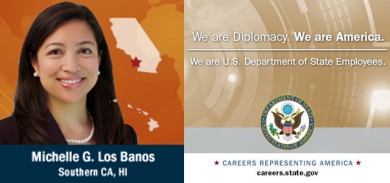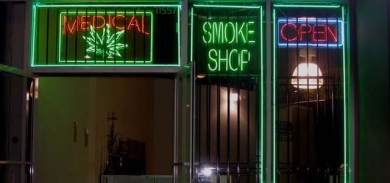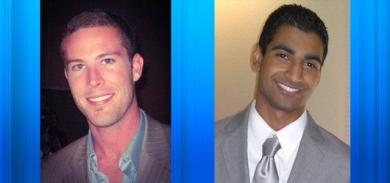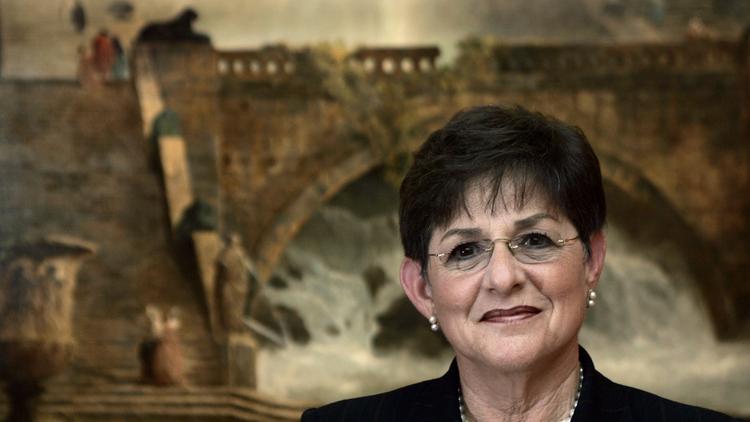UCLA Luskin Welcomes New Diplomat in Residence Michelle G. Los Banos represents the U.S. Department of State and U.S. Foreign Service.

Foreign Service Officer Michelle G. Los Banos will serve as UCLA’s new Diplomat in Residence for the 2014 – 2016 academic years. She was appointed by the U.S. Department of State to serve as Diplomat in Residence for Southern California and Hawaii and will be housed in the UCLA Luskin School of Public Affairs.
Los Banos will serve as a resource to students and graduates interested in working in the Foreign Service and at the Department of State. She will be attending career fairs and conferences, as well as holding informational sessions and meetings with students by appointment.
In addition to her duties as Diplomat in Residence, Los Banos will also serve the Luskin School of Public Affairs as a Senior Fellow mentoring students from across all three departments.
“I am extremely excited to support my organization and help strengthen our future diplomatic corps by recruiting talented and diverse individuals to work for the State Department,” Los Banos said. “Being a Senior Fellow and getting to work with students who might share similar interests is also very exciting. It will give me a chance to share the experience and knowledge that I’ve gained in the world of diplomacy with someone who might be passionate about public service.”
Los Banos holds a Master in Public Policy from Harvard University’s John F. Kennedy School of Government and a Bachelor of Science in Foreign Service from Georgetown University. Her 12-year career in the Foreign Service has taken her to Ankara, Turkey; Managua, Nicaragua; Rome, Italy; as well as State Department headquarters in Washington, D.C, where she most recently served as Deputy Division Chief in the Cultural Programs Division of the Bureau of Educational and Cultural Affairs. A native of the San Francisco Bay Area, Los Banos is also excited to be back in her home state.
“We are honored to have Ms. Los Banos join us here at Luskin,” said Dean Franklin D. Gilliam. “It has been our privilege to host Diplomats in Residence since 1998. Ms. Los Banos’ unique skills and experiences will be a valuable resource to our students who are dedicated to making an impact both locally and globally.”
For information about all upcoming events Los Banos will hold at UCLA and in the greater Los Angeles area, follow her on Facebook – DOS Diplomat in Residence Southern California. For individual or group appointments, you can email her at DIRSouthernCalifornia@state.gov.



